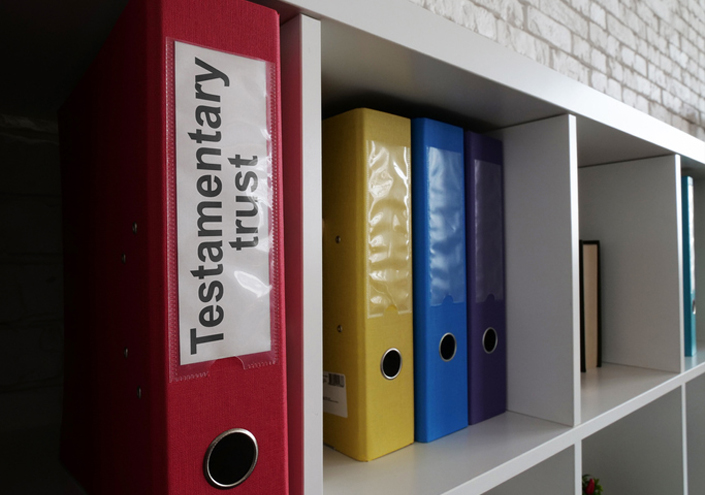This may be problematic for the trustee if investigated by the ATO. For example, given that testamentary trusts are subject to the Medicare levy and deceased estates are not, we have seen instances where the ATO has viewed this practice as tax avoidance.
A brief comparison of the key differences between the taxation of testamentary and other trusts is set out below:
- The trustee of any trust will be assessed on any net income that is not assessed to beneficiaries. However, the trustee of a testamentary trust is generally assessed at standard marginal rates (excluding the tax free threshold of $18,200 – see below), whereas the trustee of an inter vivos trust is taxed at 47%.
Tax rates 2024–25 or later
| Deceased estate taxable income (no present entitlement) | Tax rates |
|---|---|
| 0 – $416 | Nil |
| $417 – $611 | 50% of excess over $416 |
| $612 – $45,000 | the entire amount from $0 will be taxed at the rate of 16% |
| $45,001 – $135,000 | $7,200 plus 30c for each $1 over $45,000 |
| $135,001 – $190,000 | $34,200 plus 37c for each $1 over $135,000 |
| $190,001 and over | $54,550 plus 45c for each $1 over $190,000 |
- A testamentary trustee is entitled to the 50% CGT discount for gains from assets which have been held for at least12 months as well as all of the small business CGT concesssions. The CGT discount and certain SB concessions are not available to trustees of other trusts.
- Under section 102AG (2)(a) ITAA 1936, income from a testamentary trust for children is classified as ‘excepted trust income’ and will be taxed at ordinary adult marginal rates against the trustee.
- In respect of assets that the deceased person owned when they died, there is no capital gain or loss when the asset passes to a trust beneficiary. While technically the Division 128 CGT rollover does not apply when assets pass from a testamentary trustee, the ATO has addressed this in Practice Statement PSLA 2003/12 by stating that they will treat a testamentary trustee in the same manner as they treat a legal personal representative. However, as with any ATO practice, it operates solely at the Commissioner’s discretion and could arguably be withdrawn at any time; albeit we believe at this time this is most unlikely to occur.
General issues For Trustees (of all trusts) to be alert to
- As with all trusts, a trustee must be familiar with, and act in accordance with, the terms of the trust (as supplemented by relevant state and territory legislation). You should contact a legal advisor, if you want advice about the trust terms.
- From a tax perspective, the trustee is responsible for managing the trust’s tax affairs. Among other things this may require the trustee to:
- apply for a tax file number and arrange for preparation of tax returns
- The income and franking credits that have been distributed to them
- Trusts registering and reporting for tax (ATO website QC 23089)
- ensure that they make necessary resolutions to make beneficiaries entitled to income or capital gains (if it is intended that tax be borne by the beneficiaries) rather than the trust
- Trustee resolutions (ATO website QC 25912)
- consider whether it is necessary to make a family trust election (FTE)
- An FTE entitles a trust to access certain tax concessions (in particular franking credits and tax losses). The trade-off is that family trust distribution tax (FTDT) is imposed when distributions are made outside the family group. A trustee only makes a valid FTE where they have satisfied the relevant tests. Once an election has been made, it cannot be varied or revoked except in limited circumstances.
- Family trust concessions (ATO website QC 48752)
- comply with closely-held trust TFN reporting requirements
- What trustees need to do (ATO website QC 23140)
Feel free to contact our team should you want to discuss this topic further and potentially have clients who may be in this situation.
This publication is not intended to be and should not be used as a substitute for taking taxation advice in any specific situation. The information in this publication may be subject to change as taxation, superannuation and related laws and practices alter frequently and without warning. Neither BNR Partners Pty Ltd, our employees or agents are responsible for any errors or omissions or any actions taken or not taken on the basis of this publication.


